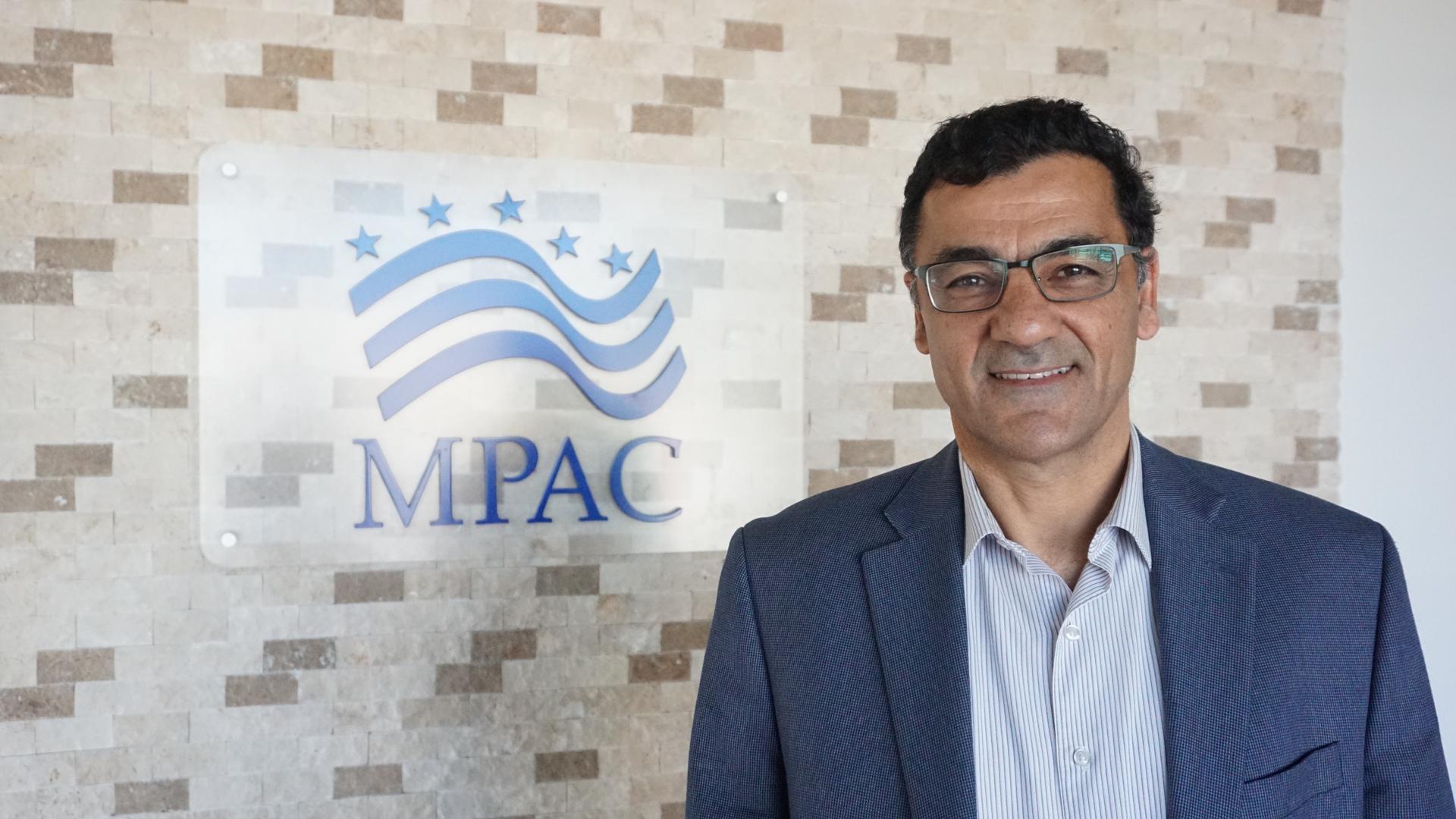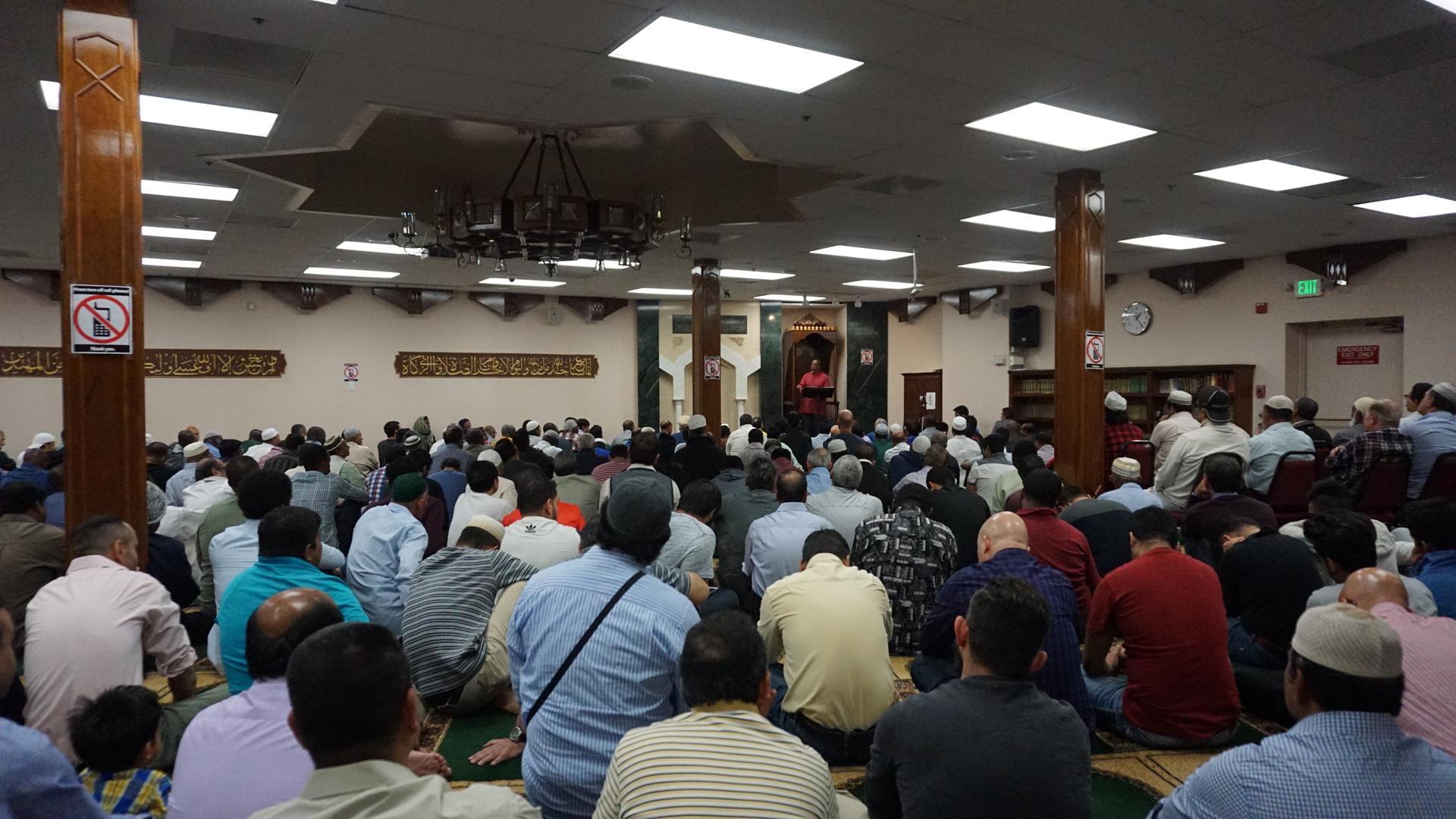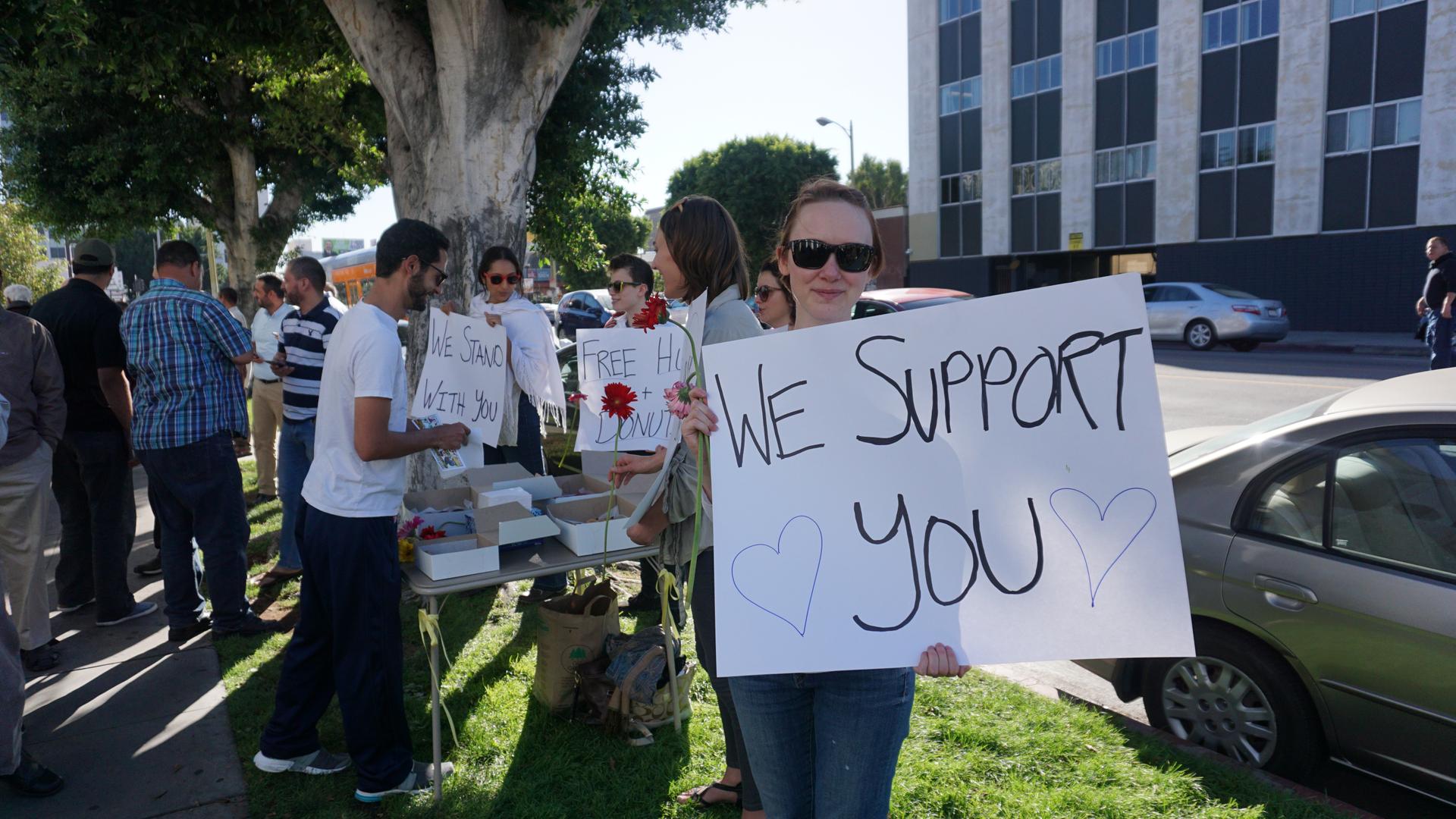Non-Muslims offer expressions of support to Muslim Americans outside of the Islamic Center of Southern California in Los Angeles.
The Islamic Center of Southern California, in Los Angeles, is a crossroads of Muslim American spiritual and social life. On Friday, it was also a place for people, Muslims and non-Muslims alike, to show solidarity in the face of suggestions by members of President-elect Donald Trump’s transition team to require Muslim residents in the United States to register in a database.
At the Islamic Center, Imam Tariq Aquil told congregants that he understood their anxieties about Trump, but that the incoming president should not intimidate them. “It is still our responsibility to be active in the society and the community,” Aquil said. “We still have the responsibility to go to city council meetings, to have our input and to do our share and to make our contributions to a fair and just society.”
Aquil also reminded the congregation of the expression of support Muslims have received from non-Muslims in the wake of Trump’s election. “I have never seen the outpouring and the unity and the support of the Jewish community, the Christian community and others coming to the help of the Muslims,” Aquil said. “Allah says, 'I will send you help from directions you didn’t even see.' We are getting blessings from places we didn’t even anticipate.”
After Friday’s service, many congregants said they were wary of Trump, but also hoped for the best.
“The people have spoken,” said Mustafa Baha. “They have decided that he is going to be our president, so now we need to support him. If things he is doing are not right, of course, we are going to fight him, of course, we are going to get involved and say, ‘This is not right, this is what we prefer you do.’”
As Muslim Americans adjust to the idea of Trump as president, civil rights leaders are thinking about responses to possible anti-Muslim initiatives.
In a video conference between Los Angeles and Washington DC, staff members at the Los Angeles-based Muslim American Public Affairs Council, or MPAC, talked about cultivating political and grassroots support during a Trump administration. Salam al-Marayati, MPAC’s founder, said he is worried about what might happen in the years ahead if groups like his don't start organizing.

“I don’t think internment camps are out of the question,” says Marayati. “It just takes one catastrophic event to unleash the fear and hysteria from the public and having the federal government do something that drastic.”
Marayati says if the Trump administration does target Muslim Americans in a constitutionally questionable way, he would expect cities like Los Angeles to resist cooperating with federal authorities. “Any kind of deportations, denaturalization that is targeting our community, I want this city and other major cities to uphold the constitution,” says Marayati.

